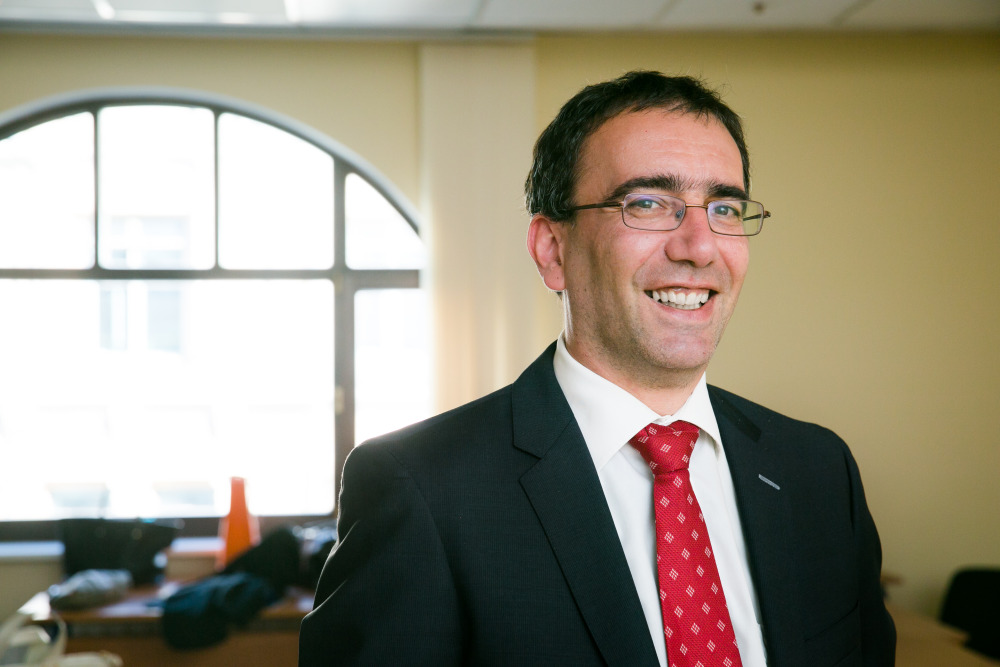About ISSEK in the 5th issue of HSE University Review
A number of projects and events of the ISSEK are mentioned in the latest quarterly issue of the English-language newsletter, which is an overview of the important current events and achievements of the HSE according to the HSE Office of Public Relations and Online Media.
Science Diplomacy is Gaining “Soft Power”
On February 21, in the framework of the HSE ISSEK Master’s Programme “Governance of Science, Technology and Innovation” Professor Pierre-Bruno Ruffini of the University of Le Havre (France) delivered a public lecture on key aspects of “science diplomacy”, which is turning into an increasingly important element of various countries’ influence strategies and the main “soft power” tool in their competing for people’s “hearts and minds”.
HSE ISSEK Contributed to the Encyclopedia of Information Science and Technology
Gulnara Abdrakhmanova, Leonid Gokhberg, and Alexander Sokolov prepared a chapter “Indicators of Information and Communication Technology” for 10-volume set of the Encyclopedia of Information Science and Technology (edited by Mehdi Khosrow-Pour, Information Resources Management Association, USA). Its Fourth Edition will be released in July, 2017 and it is available for pre-order.
‘Soyuz’ of US, Russia Entrep Produce Top-end Microphones
In Tula, a city packed with the Russian defence industry, Californian musician David Brown and fan Pavel Bazdyrev have been making high-end microphones since 2014, taking advantage of cheap labor and second hand machinery from Kalashnikov arms plants. Vasily Abashkin, Leading Expert at the Centre for Industrial Policy HSE ISSEK, told Associated Press that the engineering sector in Russia has not yet caught up with foreign countries to bridge the gap of the last two decades.

Building an International Master’s Programme: Design of Curriculum and Role of Partnerships
Dirk Meissner, Professor at the Institute for Statistical Studies and Economics of Knowledge and the Academic supervisor of the Master’s Programme ‘Governance of Science, Technology and Innovation’, has talked to HSE English-language news bulletin, The HSE Look, about programme development and achievements.
-it-(46%25-%D1%86%D0%B4).jpg)
Figure of the Day: 63%
63% of IT companies’ managers do not see the Western sanctions as a threat to their business. This was established by the HSE ISSEK Centre for Business Tendencies Studies in the course of monitoring business climate in the IT services sector.
Social Demand for New Technologies
Russians turn out to be rather conservative in their perception of new technologies, innovative products and services, and willingness to use. That was discovered in the course of a survey conducted by the ISSEK experts in the scope of the Monitoring Innovative Behaviour of the Population study (2015-2016). The results are presented in the current issue of the Science, Technology and Innovation newsletter.
Russian Intellectual Property Market Trends
A new issue of the Science, Technology and Innovation newsletter presents data on Russian and international applicants’ patent filing at the Federal Intellectual Property Service (Rospatent).
Governance in STI Programme Proves to be Right Fit for Delhi Native
After completing an undergraduate degree in Computer Science and Engineering in his native Delhi, India, Shashank Pant began searching for a Master’s programme that would provide a balance between management and science. HSE ISSEK's Governance in STI programme turned out to be what he was looking for as he prepares for an eventual career in innovation at a multinational corporation.
Who Studies Russian Science and How?
On February 8, Russian Science Day, the Higher School of Economics, along with the Russian Federal State Statistics Service (Rosstat) and the Ministry of Education and Science, released its annual statistical data book on the state of science, technology, and innovation. Below, the Director of the HSE ISSEK and HSE First Vice Rector Leonid Gokhberg discusses how research on science in Russia is advancing.
